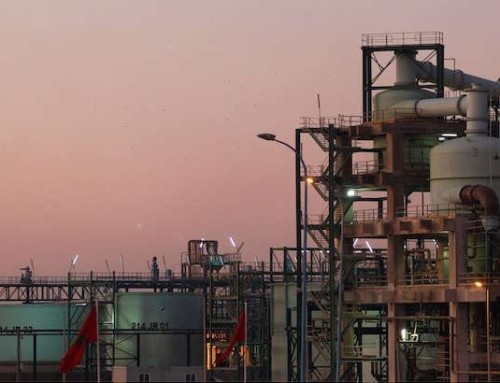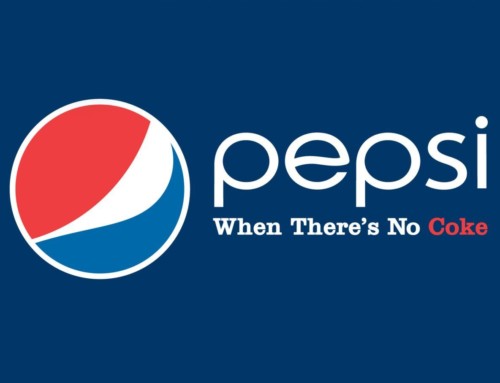Hello, let us start the article with an appetizer. Find below a list of huge companies that failed in Zimbabwe.
List of Huge Companies That Failed in Zimbabwe
Air Zimbabwe; Aman Investments; Apex Corporation; Asmara Company; Auto Electrical; Barragen Private Limited; Belmont Leather; Biticon; Blue Ribbon; Builders’ Depot; C & M Investments; Cairns Foods; CFX Bank; CMS Leatherware; Coppleridge; Cottco; David Whitehead; Durawood; Eaglemoss Enterprises; Ekusileni Medical Center; Familiar Marketing; Glycemic; Investments; Gulliver; Gutsai; Hubert Davies; Hunyani Forest; Interfin Bank; Irazim & Travan; JD Construction; Julie White Dresses; JW Wilson International; Kamunda Investmens; Kenmark; Kingdom Bank Limited; Kukura Kurerwa; Lancashire Manufacturing; Laurel Creations; Marios Joinery; Marondera Sawmills; Masalu’s Kitchen; Matfield Operations; Mutare Associated Tyres; National Blankets; Pacprint; Parama; Perfect Bakery; Phoenix Consolidated Industries; Remington; River Ranch; Road Motor Services; Roblees Investments; Royal Bank Zimbabwe; Ruwa Export; Security Mills; Shoppa Stoppa; Silicome; Simerek Investments; Star Africa; Steelnet; Sybrook; Tandara Inn; Treadwinds; Trishal Properties; UBM; Woodwise; WRS; Zimbabwe Broadcasting Corporation; Zimbabwe United Passenger Company; ZimPost
Huge companies that failed in Zimbabwe blame the harsh economic environment and other factors.
Yes, the macro environment plays a role in the demise of huge companies that failed in Zimbabwe, but other factors are involved as well. These factors reside in a firm’s microenvironment.
Factors in the microenvironment are also the reason why, even if Zimbabwe’s economy were to recover, we would probably still have two companies in Africa’s Top 250 Companies list and the rest would still be irrelevant.
I am going to talk about three reasons that caused the downfall of huge companies that failed in Zimbabwe. The focus is going to be on factors that a company can control and give some examples along the way.
1) Failing to adapt to the changing marketing landscape
Engaging In Mass Production
In Zimbabwe, we are using mass production. There is evidence in our stores with shelves full of products people do not need.
Stocking products that are not selling are wasteful as you incur storage costs and your liquidity is held up among other issues.
Current marketing practices ensure that companies produce just enough amounts for the market. Would you not love it as a customer if you could walk into OK and not have to squeeze the bread to ensure that it is fresh and avoid getting stale bread?
Overstocking is a symptom of there not being a science in how business conducts its operations in Zimbabwe.
If the marketers got their demand predictions for their products correct and liaised with manufacturing, logistics and their dealers, I would not end up with a flat soft drink in my hands and a bad attitude.
To sum it up the mass production, storage, distribution, etc. that is going on in Zimbabwe is wasting resources and since profits are already low, is causing the downfall of huge companies that failed in Zimbabwe.
Poorly Conceived Marketing Campaigns
Another symptom of us not adapting our marketing practices are poorly conceived and poorly implemented marketing campaigns.
Advertising Without A Strategy
Adverts are everywhere, and they seem to be targeting anything that has eyes and ears.
People think of a product and, go straight to the advertising agency which then creates a beautiful advert that does not have anything backing it like a strategy. A strategy is the soul of an advert and is more important than the pictures and videos.
Rampant advertising is a symptom of companies trapped in the ‘Marketing Stone Age.’
To survive in Zimbabwe, you now have to get more bang for your buck. Modern companies use personal communication methods which create stronger business leads at a lower cost resulting in a higher return on investment for a firm.
In every ten adverts that you come across in Zimbabwe how many speak to you and make you want to engage with the product?
The answer to that question will give you an idea of how much money was being wasted by huge companies that failed in Zimbabwe.
Improper Use Of Promotions
One of the main purposes of promotions and adverts is to regulate demand creating more demand and revenue during times were business is suppressed.
Promotions are supposed to be seasonal or cyclical like the rains but we see them all year round like the sun.
Let me give an example of Ster Kinekor. Ster Kinekor has the weekly promotion where they charge half price on Tuesdays. The purpose of the promotion is to regulate demand and move demand to days when traffic flow is at its lowest.
Ster Kinekor uses promotions on Tuesday because Old Mutual will still want its rent from Ster Kinekor at the end of the month. So half price Tuesdays is there to ensure that they are making some money both on weekends and during the week. You will never get a movie ticket for half price on a Saturday because that is the peak period and the movie houses will be full.
In Zimbabwe, however, promotion after a promotion is occurring and I am quite sure that most of these promotions do not follow a principle like the one I have explained above.
The effect of the abuse of promotions is over time the firms lose brand equity and customers will expect them to charge lower base prices for their products and services.
The loss of brand equity will reflect in less revenue and lower profit ratios. What happens after that is lower revenue and consequently business failure!
Marketing practices that are being used by some Zimbabwean firms have the effect of wasting resources and reducing the amount of money that customers want to pay for their products.
2) Failing to enter new markets
 A Zimpost Post Office. Zimpost is one of the huge companies that failed in Zimbabwe and is declining
A Zimpost Post Office. Zimpost is one of the huge companies that failed in Zimbabwe and is decliningFear Of The Unknown
Some Zimbabwean firms are reluctant to enter the international arena and the rest of the Zimbabwean firms are not aware that they can penetrate the global scene.
We produce quite many products that have markets beyond our borders but for one reason or another those firms are not doing that.
The huge companies that failed in Zimbabwe went down as a result of pursuing one market. The businesses went down with the economy and never recovered.
If these companies had been active on the international scene, they would have taken a hit but they might have survived on their international business.
Overestimating The Level of Difficulty
People are of the notion that entering the global scene is difficult but it is not as difficult as we might think, especially if you have the right marketing strategy.
Marketing your products in other countries not only increases your sources of income but it reduces your company’s level of risk.
Let me give an example of how my favorite soccer team, Manchester United, is entering new markets.
The two things that you can use to become a global player are the recent advancements in transport, finance, and communications.
In this example, I will talk about communications and finance. Manchester United knows that I hang out on Twitter, so they reach out to me using their Twitter handle @ManUtd and other means.
They asked me a question that they know needs an answer because I bought a jersey from them last year. They know that I will want to answer them by clicking on that link.
I clicked on the link and I ended up on the page below:
I ended up buying a jersey from their website using my FBC Mastercard, and I shall collect my jersey at ZimPost.
Foreign Firms Entering The Zimbabwean Market
In this way and others, Manchester United has managed to enter the Zimbabwean market without even setting foot here.
If something is to go wrong in the United Kingdom in terms of its economy, they will still make sales elsewhere and based on this example, at a little cost thus saving them from business closing. This is unlike the huge companies that failed in Zimbabwe.
What is stopping your firm from pursuing such a strategy?
If your firm had such an outlet would the problems that we are facing with our economy affect you as much? You would still have some revenue coming in from Nigeria and Sweden or wherever you will be selling your products.
Why concentrate on Zimbabwe only when the whole world is there for the taking? It is all about your skills and most of all, your marketing strategy.
3) Failing to take care of your most important asset, the customer!
 A burning ZUPCO bus. Burning like ZUPCO which is one of the huge companies that failed in Zimbabwe. Poor customer service is one of the causes of ZUPCOs demise.
A burning ZUPCO bus. Burning like ZUPCO which is one of the huge companies that failed in Zimbabwe. Poor customer service is one of the causes of ZUPCOs demise.Zimbabwean firms bite our hands over and over again. We are the ones who are made to look like beggars instead of the other way around.
Let me give a less obvious example of how Zimbabwean companies are failing to take care of the hands that feed them.
Failing To Empower Customers
I will touch on customer empowerment or rather, the lack of it, in this example. A customer who does not feel empowered feels like a victim. The result is that you get less revenue, same old story.
Do you feel empowered when you go to the service station knowing that your fuel is going to evaporate from your tank?
Yes, we are now adding more ethanol in our fuels, but it seems like these days fuel is lasting for shorter periods at E5 levels than at E10 levels.
I began to wonder what is in these fuels. A lot of possible scenarios came up in my head like what if these guys are putting some other substances into the fuel at their various service stations to increase their profit margins?
I got the feeling that, so I decided to do a little research.
The objective of the research was to find out the contents of the fuel in my car. I am sure that as a customer I have a right to know. So I decided to consult the websites of the service stations.
Not Using Technology To Empower Customers
I made the following discoveries about the use of websites by fuel retailers:
-
- ENGEN – I found engenoil.com. Some of the pages that I opened returned a ‘Server Error’ message. The closest descriptions that I got to fuel issues were documents on the Engen Primax Unleaded and Engen Dynamic Diesels. Since such fuels do not exist in Zimbabwe, I was sure that this documentation was not meant for our market and the website as well. I felt powerless once again as I could not find information. Do these companies know how much money they are losing by not having a proper online strategy?
- ZUVA Petroleum – It has no website as shown above. So I could not get any information about what I am putting in my vehicle – I felt powerless.
-
- Total – I found their website total.co.zw. I searched for the information on the ratios of the primary substances in the fuel, and the information was not available.
These four firms 1) Did not have an answer readily available for me making me feel like a victim and 2) Are not taking advantage of the internet revolution to push their sales.
Effects Of Not Using Technology In Business
Not using the internet and technology are essential ingredients in the Recipe for Business Failure or in the least, fewer profits. I did not get empowered.
You can imagine how much time I took trying to answer a simple question, what is in my fuel these days that is resulting in it giving me way less mileage than it was before?
I felt furious as I felt like I could not do anything about the situation or at least get a little more information about what is going on.
I decided that since I can not control what these companies are doing to my fuel, I shall restrain my consumption because at least I have control over that.
The service stations are now getting less money from me. Now imagine that this is happening on a countrywide scale.
I do not know, but one thing that I do know is they are surely making less money than they can at the present moment.
If firms were to take my advice quite a number of them would not have experienced business failure.
Issues are ranging from them wasting resources to limiting the amount of money that they get from customers as a result of the way that they are operating.
What other reasons do you know of that are causing business failure? Let us discuss in the comments section below.
Thanks
Ruvimbo







please drop me email: [email protected]
OK I will send you an email. Cheers.
Good article Ruvimbo – again.
Other reasons? I could lump these together into, Lack of a systems approach. This is when a company views its functional departments eg HR, Finance, Marketing etc as being disjointed (silos) from each other.
Further, I have shared your article on a number of platforms I am a member of. I hope this will help bring you mileage. More people need to know about the good work you are doing.
Thank you very much Taurai I appreciate the compliment and you sharing the article on the platforms that you are on. Such acts of kindness spur us ‘new kids on the block’ on giving us the motivation to keep going.
Yes it is interesting that firms still have a ‘silo system’ if I may call it that. In addition to creating gaps which lead to these departments not complimenting each other one of the other main problems with such an approach is that resources are wasted. For example, I know firms that have senior managers in their Marketing, Sales and Customer Service Departments. I believe that these 3 managers can be replaced with one who can oversee all these functions which will 1) Save money and 2) Ensure that these 3 functions complement each other as a result of having one strategy instead of 3 separate ones.
This is inspirational
Email me…
I hope you consider it
Thank you for the compliment Prince.
Awesome article… It is amazing how much we don’t consider when running a business
Very true about combining the duties of managers. It works because in our young company we talk and walk this system. Higher, the general manager’s mandate is organisation-wide. It is the umbrella over all the traditional functional areas and more. With such an inclusive system there is no way the right hand does not know what the left hand wants to do. The sum total is a united vision.
I like being agile. In this VUCA (volatile, uncertain, complex and ambiguous) environment being lean and mean can never be over-emphasised. This way a company manages to attract and keep its customers because it has a relevant marketing strategy.
A further advantage of the systems approach is it enables a company to conduct VCA. And here your previous 2 articles on Value Chain Analysis are quite handy. In fact I do not see how a company could be wrong by following the issues you highlighted.
At the end of the day, companies mainly fail because they do not want to engage someone who knows their subject. Whose subject is to turn them around and improve their bottom dollar.
Please keep up your good work. You are offering a comprehensive package.
Since good work speaks for itself (which is the whole purpose of marketing) you will be getting your just rewards soon.
Wise words indeed. Your comment has inspired me to conduct a study on why some managers do not want to engage consultants who can improve their bottom dollar. I am sure that the answers that I will find will assist consultants and managers all over. It will help to bridge some of the gaps that are stopping many firms from fulfilling their potential. Thank you very much that is a dimension that I had not thought of exploring yet. I will make sure that I share the insights that I will get with you.
With the news of Zuva’s re-branding coming only days after your article, I am sure I am not the only one who is interested in hearing your comment re: the efficacy of their exercise.
Please see, Zuva Petroleum re brands by mizadmin
Very interesting article indeed. I was actually mulling over writing an article about these service stations. I am now going to do just that and this is going to be my next article. The article is going to be a comparison of these various service stations and which one I think is the best of the pack. I will also include pointers on how one can choose the best station for themselves. The reason being that in the (fuel) market word of mouth usually influences people’s decisions. As a result of word of mouth there is a certain service station that is preferred to others as people say that ‘its fuel is of the highest quality and lasts longer than that of the other fuel stations’ My aim is, through the article, to establish how true these claims are. Your question will definitely be answered in the article.
Thank you very much for the inspiration I hope that the article will make for a good read.
I’ve read several just right stuff here. Definitely value
bookmarking for revisiting. I surprise how much attempt you place to make this sort of
great informative web site.
I found simply the information I already searched throughout the
place and simply couldn’t encounter. What a great website.
Thank you.
Hi there! I simply would really like to give a huge thumbs up
for the good data you’ve got here on this post.
I will probably be returning again to your weblog for
more soon.
That’s great thank you I hope you return for sure.
I like this website much for it has loads of wonderful information.
Thank you so much, I am glad that you approve.
Thank you for this; I’m officially a big fan of your blog.
That’s great thanks.
I recently noticed your site. You’ve got a plenty of information here that is why i like it!
Thank you have a great day. I will keep the information flowing.
I’m glad I discovered your article. I would not have made sense of this topic on my own.
I’ve read some other articles on this subject, yet I was baffled till I read yours.
Hi Tayla. Thank you very much for the compliment. Good day.
When visiting blogs, i usually discover a good content like yours.
Excellent job on this post! I enjoy how you presented your facts
and how you made it appealing and straightforward. Thanks a lot.
Thank you very much I will maintain the standard.
Hie Ruvimbo, this is an amazing article and it helped me a lot, please drop some reasons and factors why businesses may fail. I would really love to learn before I get my business up and running
You are welcome Chloe and thank you. OK, what type of business do you want to launch? Knowing the type of business enables me to give you an accurate response.
hie ruvimbo thank you a lot this article has helped me a lot
Hi Loveness, you are welcome. I am glad the article helped you.
Well done Ruvimbo this is so helpful u did it well and all writen are actual facts thank God for you we are learning things that we would want to work on our future businesses and hopefully will engage into it better
Thank you for the compliment Ellen. Let’s continue to share knowledge with each other and our businesses will prosper.